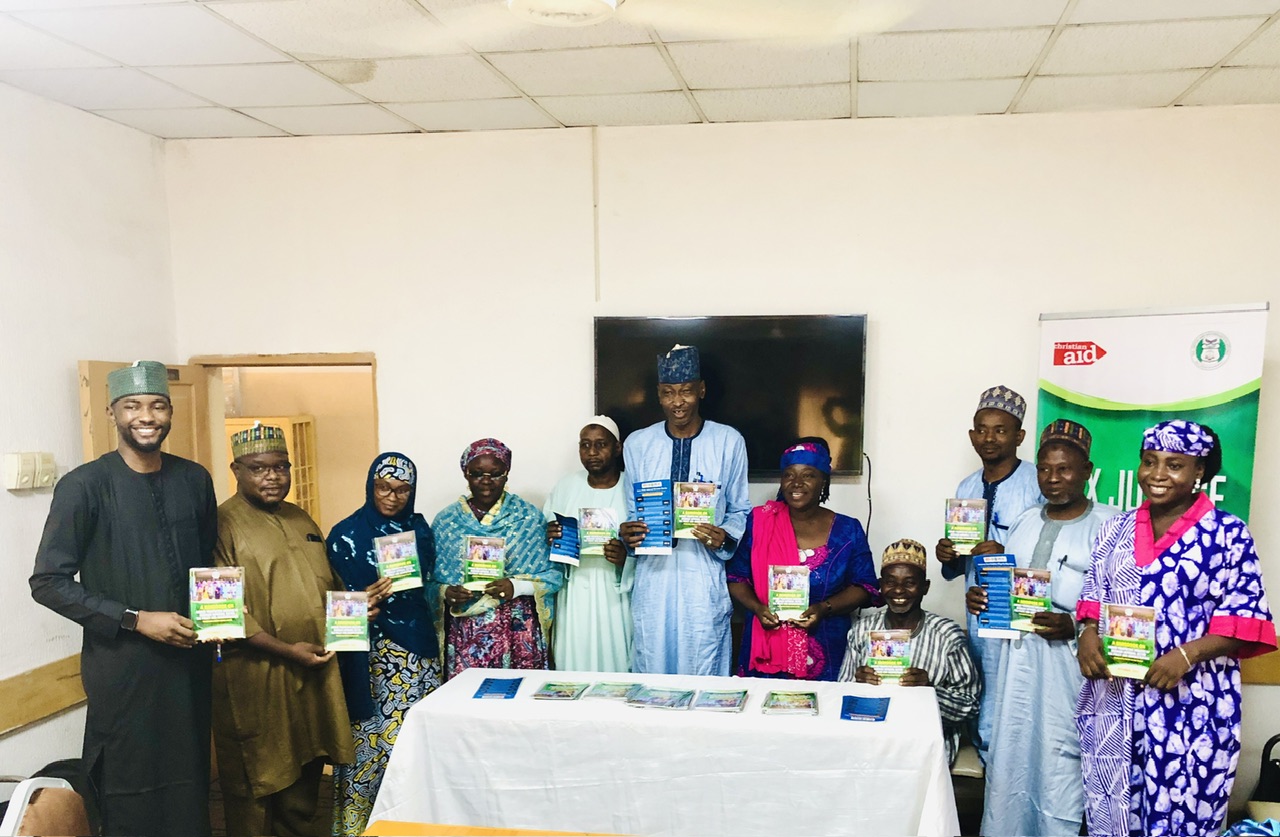By Mustapha Salisu
The Tax Justice & Governance Platform (TJ&GP) has launched a handbook aimed at addressing gender disparities in tax policies and administration within Kano State’s informal sector.
The handbook, titled “Gender Analysis of Tax Policies and Administration in Kano State’s Informal Sector,” was developed through research conducted by the International Budget Partnership (IBP) Nigeria as part of the STATE project (Strengthening Taxation in Africa for Transparency and Equity) and was funded by Christian Aid Nigeria, with support from the Civil Society Legislative Advocacy Centre (CISLAC) under the project “Fostering Gender-Just Recoveries Through Tax Systems in Nigeria.”
The disclosure was made on Tuesday during a press briefing by TJ&GP Program Lead in Kano, Sadiq Muhammad Mustapha shortly after the official launch of the publication at Mambayya House, Kano.
He said the handbook serves as a strategic tool to examine how tax policies affect women and other marginalized groups who dominate the informal economy in Kano.
Sadiq said that despite their economic contribution, women in the informal sector are often sidelined by tax policies that fail to account for their lived realities. Noting that most of these women operate small-scale businesses with little income, often ranging between N15,000 and N45,000 monthly.

He said the study found that 98 percent of women surveyed had never received any form of tax education or sensitization. “This lack of awareness, he explained, puts them at a disadvantage and exposes them to extortion and harassment during tax enforcement”
Sadiq added that patriarchal norms remain a significant barrier, as many women lack autonomy in financial decisions, often deferring to male figures in their households or communities. He observed that most of these businesses rely on cash transactions, with minimal use of digital tools, making formal engagement with the tax system difficult.
He said the handbook proposes targeted interventions, including gender-responsive tax incentives and simplified relief measures for women in caregiving roles, widows, and other vulnerable groups. “These policies must be tailored to fit the realities of informal business operators”
Sadiq emphasized the need for mass tax education using local languages and culturally relevant materials. Adding that said such efforts would help demystify tax systems and empower women to make informed decisions about their obligations and entitlements.
He also called for reforms in tax enforcement practices, including the establishment of a digital, anonymous grievance redress mechanism. He stressed that tax officials should undergo training on gender sensitivity and rights-based engagement to prevent abuse during revenue collection.
Sadiq highlighted the importance of digital inclusion, stating that the government should partner with fintech companies to develop low-cost, accessible tax payment platforms. These tools, he said, would encourage compliance without penalizing those operating at the margins of the economy.
He concluded by urging government agencies, including the Kano State Internal Revenue Service and various ministries, to adopt the handbook’s recommendations. He also called on civil society and community organizations to continue pushing for fair and inclusive tax systems across the state.



